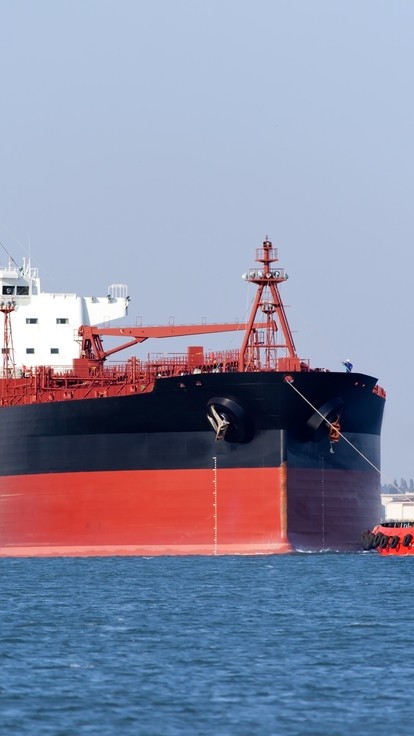Sonact Group Limited -v- Premuda SPA (The "FOUR ISLAND") [2018] EWHC 3820 (Comm)

Details
The Commercial Court in this case considered an application brought by Sonact Group Limited (the charterer) challenging an award in favour of Premuda SPA (the owner), on the ground that the arbitrators did not have substantive jurisdiction to determine the claim. The issue for the court was whether the arbitration clause in the charterparty applied to the subsequent settlement agreement in the absence of an express jurisdiction clause.
Factual background
On 27 June 2014, the defendant owner chartered its motor tanker, the “FOUR ISLAND”, to the claimant charterer for a voyage in Russia with a cargo of fuel oil. The charterparty was on an amended Asbatankvoy form and provided for London arbitration of ‘any and all differences and disputes of whatsoever nature arising out of this charter…’. In due course, the owner had a claim for demurrage and heating costs exceeding US$900,000. The claim was settled by an exchange of emails, in which the charterer agreed to pay US$600,000 by 24 April 2015. However, the sum was not paid.
On 23 December 2015 the owner gave notice of arbitration, referring to a number of claims including ‘a demurrage claim, a claim for heating costs… plus various other matters’. The claim advanced by the owner in the arbitration was for the agreed sum of US$600,000. The charterer contended that the arbitrators did not have jurisdiction to determine this claim because the settlement agreement did not contain an arbitration clause and this dispute arose under the settlement agreement and not the charter.
The tribunal rejected the charterer’s argument and concluded that it is open to parties to agree that any agreement should be governed by dispute resolution provisions that are different to those in the governing charterparty, but particularly where there is no separate self-contained agreement and merely an exchange of emails such an agreement would have to be expressly recorded and could not just be inferred. Accordingly, the arbitrators held that they had jurisdiction and awarded the sum claimed. The charterer appealed against the award on jurisdictional grounds pursuant to section 67 of the Arbitration Act 1996.
Legal issues
It is well established that section 67 challenges involve a rehearing and not merely a review of the issue of jurisdiction. In the case of Dallah Real Estate & Tourism Holding Company -v- Ministry of Religious Affairs of the Government of Pakistan [2010] UK SC46 it was confirmed that the court is not confined to a review of the arbitrators’ reasoning but effectively decides the issue for itself. However, Mr Justice Males recognised that on this subject matter the views of the experienced tribunal carry considerable weight and found the arbitrators’ reasoning ‘entirely convincing’.
The court agreed with the arbitrators that it was obvious that the parties intended for the arbitration clause in the charterparty to continue to apply if the owner’s claim for demurrage and heating costs was not paid. It was held that the wide wording of the arbitration clause was sufficient to encompass such a claim, albeit that the agreement to pay US$600,000 represented a new cause of action under a separate contract. The judge commented that the settlement agreement reached between the parties was in reality, ‘no more than an informal and routine arrangement to finalise the sums due under the charterparty’.
Mr Justice Males acknowledged that strictly speaking the notice of arbitration did not refer to this agreed sum of US$600,000 and spoke instead of a claim for demurrage and heating costs as well as other possible claims. However, the judge found that the arbitration notice was effective to refer the owner’s claim to arbitration. It was decided that the US$600,000, which was the sum agreed to be due in respect of demurrage and heating costs, could be construed as a claim for demurrage and heating costs. The judge suggested that his conclusions reflected the ‘broad and flexible approach’ to notices of arbitration commended in The Lapad [2004] EWHC 1273 (Comm) and dismissed the charterer’s appeal.
Comment
This case is an example of the High Court finding that an arbitration clause in one agreement may be implied into another later agreement in circumstances where there is no express jurisdiction clause in the later agreement. However, the case was determined on its own particular facts and parties should not assume that an arbitration agreement in an underlying contract will always apply to subsequent related agreements. The best way to avoid future disputes in relation to jurisdiction is to ensure that the essential terms of any settlement, including those relating to choice of law and jurisdiction, are documented clearly in a settlement agreement.
This article originally appeared in the February 2019 edition of shipping case digest. Other articles include:
Kaefer Aislamientos SA de CV -v- AMS Drilling Mexico SA & Ors [2019] EWCA Civ 10
Nautical Challenge Limited -v- Evergreen Marine (UK) Limited [2019] EWCA Civ 2173






